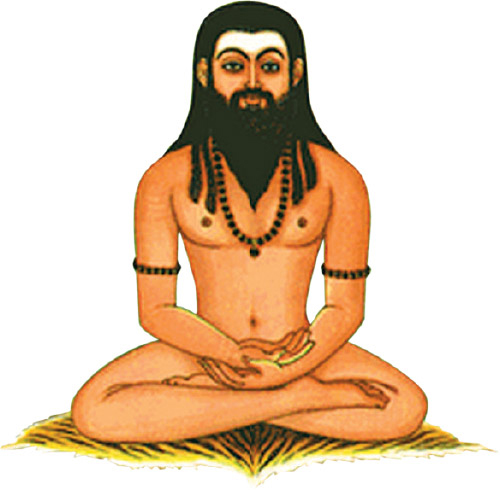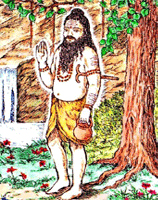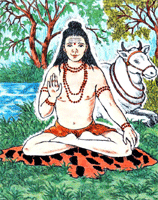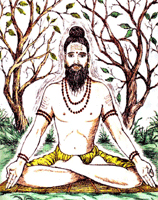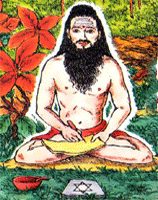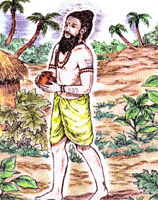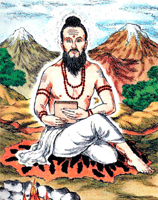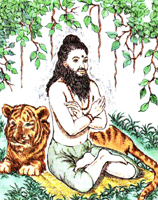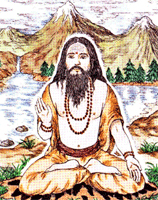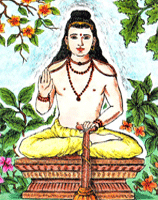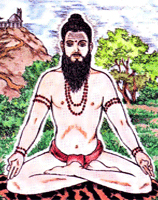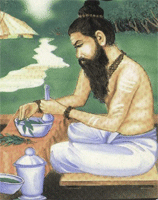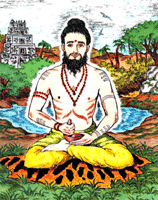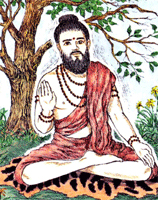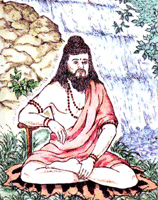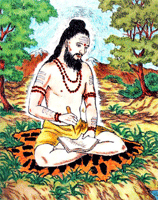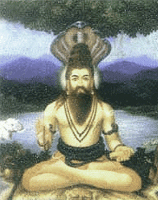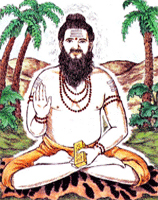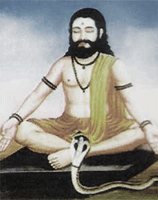Siddhars
The Siddhar (in Tamil 'cittu' meaning knowledge) are saints in Tamil Nadu, who professed and practised an unorthodox type
of sādhanā (spiritual practices) to attain liberation. A siddha obtains yogic powers called siddhi by constant practice of certain
yogic disciplines . The siddhars can be compared to mystics in Western culture.
Historically, Siddhar also refers to the people who were early age wandering adepts that dominated ancient Tamil teaching and
philosophy. They were knowledgeable in science, technology, astronomy, literature, fine arts, music, drama, dance, and provided
solutions to common people in their illness and advice for their future. By following their advices people enjoyed mental and
bodily health, respecting nature and living hygienically.
Typically Siddhars were saints, doctors, alchemists and mystics all at once. They wrote their findings in the form of poems
in the Tamil language, on palm leaves which are collected and stored in what are known as the "Palm leaf manuscripts". These are
still owned by some families in Tamil Nadu and handed down through the generations, as well as being kept in public institutions
such as universities in India, Germany, Great Britain and the United States.
In this way Siddhars developed, among other branches of a vast knowledge-system, what is now known as Siddha medicine,
practised mainly in Tamil Nadu as a type of traditional native medicine.
There are 18 siddhars in the Tamil Siddha tradition, who lived through various periods. Their works range from Siddha to Varma;
Yoga to Philosophy. Of these 18 siddhars, most prominent Siddhar is Thirumoolar

